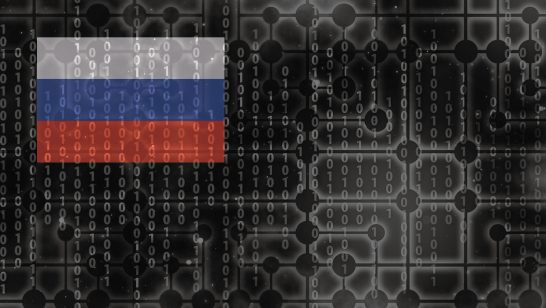
The so-called “Cuban missile crisis” is turning 52, but it is certainly not forgotten; on the contrary, almost everyone seems to have an opinion on it. It even made it into a clever super-hero blockbuster, X-Men First Class in 2011. At a time when forgetting is a threat to global nuclear safety and security, this widespread memorialization is unduly reassuring. For sure the crisis appears as a special event worth learning from. But memory is not enough. Paradoxically, when an event reaches such iconic status, it can have a dangerous effect. It gives the impression that we have all learned what we needed to learn from it, while maintaining the possibility of divergent interpretations and lessons. If we expect to learn how to survive future nuclear crises from the experience of 1962, we should acknowledge that the paradoxical effects of such memorialization are dangerous. It creates the twin illusion of unanimity and appropriateness of the lessons learned from the crisis, and perpetuates what made the crisis dangerous in the first place: the overconfidence that the leadership at the time had about both their knowledge and the sufficiency of that knowledge to allow successful management of a nuclear crisis.
During the crisis, overconfidence on both sides of the Cold War divide led to bold moves which increased the nuclear danger. For instance, the Kennedy administration thought it could safely authorize a quarantine of Cuba because nuclear warheads appeared not to have arrived on the island yet (1); similarly, it thought it could safely use “practice” depth charges to force three Soviet submarines near Cuba to surface because it never considered that they might carry nuclear torpedoes. It was wrong on both counts: the warheads were already on the island and each submarine carried one nuclear torpedo; one even came close to using it against the American fleet. In addition to these misperceptions, the Kennedy administration was totally unaware of the fact that the DEFCON status had been raised to the last step before nuclear war by General Thomas Power, then head of the Strategic Air Command. He did so without informing either the President or any National Security Staff member.
Limits of knowledge, misperceptions and overconfidence increased the likelihood of nuclear use during the crisis. Its current memorialization creates a similar and dangerous feeling of confidence that we know what we need to know about it, while allowing conflicting interpretations regarding the level of vulnerability at the time and appropriate responses to it to coexist.
The crisis has been used to justify very diverse political moves, within nuclear weapons politics and beyond. On the one hand, to emphasize the unsustainability of a nuclear armed world, proponents of abolishing nuclear weapons invoke Robert McNamara’s warning (made after he left office) that we came perilously close to nuclear war and “at the end, we lucked out”. On the other hand, “nuclear optimists” conveniently neglect that last aspect and use the crisis as an eloquent example of the efficacy of existential deterrence. Lyndon Johnson interpreted the outcome of the crisis as a victory of American coercive diplomacy, which gave him confidence that a similar strategy could successfully be applied to solve the problem of the deterioration of the situation in Vietnam.
The opening of archives worldwide after fifty years suggests that this diversity of interpretations of the crisis is going to remain and possibly increase, without exposing as an illusion the belief that we have already learned what we need to in order to successfully deal with similar events in the future. Documents in those archives suggest that there existed very diverse experiences and interpretations of nuclear vulnerability during the crisis, which are likely to lead to very different conclusions. I will provide six examples along the spectrum.
In the United Kingdom, the elites were well aware of their nuclear vulnerability at the time and saw the possibility of escalation to an all-out nuclear war. On the other end of the spectrum, the French barely experienced fear of nuclear war. In the days following Kennedy’s speech announcing the blockade, they were mostly focused on domestic affairs – the referendum on the possibility of the President of Republic being elected by the entire body politic took place on October 28, 1962 and the Algerian war of independence had ended only a few months earlier. Primarily, the French reaction was silence. They saw the crisis either as a learning experience for the American leader and his Soviet counterpart or as a demonstration of the bipolar nature of the Cold War order orchestrated by the two superpowers.
The Brazilians, to bring another example, did not show any awareness of their vulnerability, apart from a group of scientists who expressed concern about the radiation effects in case of an attack against Cuba, but not the existential dangers of a nuclear war. Similarly, China did not consider the crisis as a turning point in global nuclear politics; it did not place its forces on alert and only organized protests condemning U. S. actions across the country and blood donations in its embassy in Havana. In Oceania, both the Australian and New Zealand leadership interpreted the crisis as a nuclear threat for the United States but did not feel any direct threat to their own territory.
Depending on the country considered, the perception of nuclear vulnerability at the time varied enormously, and with it, the perceived implications of the crisis –impact on the possibility of maintaining meaningful alliances in the nuclear era, the role of collective security architectures like the United Nations Security Council, possibility of neutrality, benefits of existential nuclear deterrence or extended nuclear deterrence. The multiple periodization and labels for the event – ‘the Cuban missile crisis’, ‘October crisis’ or ‘Caribbean crisis’ – should dissipate the dangerous illusion that there was a universal awareness of nuclear vulnerability and of the limits of manageability of nuclear crises.
We need to remember the global nuclear crisis of 1962, but also recognize that our memories and interpretations of it differ. Most importantly, we have to realize that they are not sufficient for safely managing future crises. Even if the verdict of the historical scholarship on the ‘Cuban missile crisis’ evolves on several aspects, the diagnoses on the limits of knowledge and overconfidence are likely to remain – as does global nuclear vulnerability. Let’s not make the same mistakes with future nuclear crises. Let’s remember the Cuban missile crisis with humility.
The opinions articulated above represent the views of the author(s), and do not necessarily reflect the position of the European Leadership Network or any of its members. The ELN’s aim is to encourage debates that will help develop Europe’s capacity to address the pressing foreign, defence, and security challenges of our time.
(1) This is now a widely accepted interpretation even if Volume III of the missile-crisis tapes book maintains a different, though probably tentative conclusion (p. 327), see web1.millercenter.org/presidentialrecordings/jfk_3_pub/12_oct26.pdf


